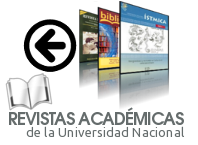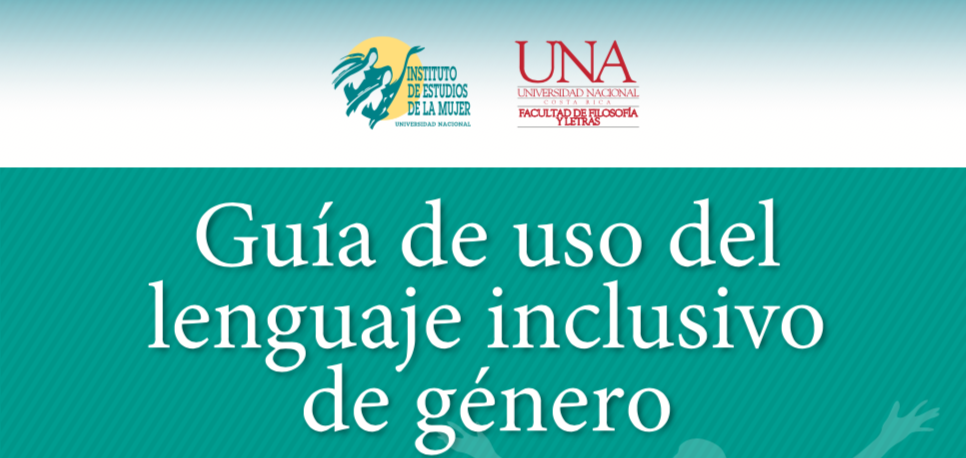Biología y medicina reduccionistas: Una reflexión sobre sus raíces epistemológicas y sus limitaciones
DOI:
https://doi.org/10.15359/praxis.83.3Palabras clave:
Ciencia médica, reduccionismo, industria farmacéutica, causalidad, complejidadResumen
La masiva inoculación de vacunas preventivas del COVID es el más reciente acontecimiento en el que las empresas farmacéuticas y la ciencia médica dependiente de ellas imponen su visión de lo que deben ser los tratamientos preventivos. Estos han estado históricamente basados en una concepción reduccionista y mecanicista del cuerpo humano y de los procesos de la vida, que está siendo crecientemente cuestionada en favor de concepciones más integrativas, relacionales y de la totalidad en el mundo vivo. Sin menospreciar los logros que aquella concepción médica ha tenido, sí se considera indispensable aprovechar la situación sanitaria mundial presente para abrir una reflexión crítica sobre los fundamentos metodológicos de la medicina hegemónica; exhibir tanto sus aciertos como sus limitaciones y dirigir estos esfuerzos a la construcción de una medicina ontológico-epistémicamente plural y despojada de su dependencia de los grandes consorcios farmacéuticos.
Referencias
Bordieu, P. “El oficio de científico”. (Barcelona: Anagrama, 2001).
Bowler, P. “Evolution: The History of an Idea”. (Berkeley: University of California Press, 2003).
Caparrós, N., y Cruz Roche, R. (directores) “Viaje a la complejidad”. (Madrid: Biblioteca Nueva, 2012).
Crick, F. “Central Dogma of Molecular” Biology. Nature, 227, (1970) 561-563.
Darwin, C. “The Variation of Plants and Animals under Domestication” (2 vol.). (Baltimore: Johns Hopkins University Press, 1998) [1868].
Darwin, C. “The Origin of Species”. (Cambridge, MA: Harvard University Press, 1964) [1859].
De la Mettrie, J. O. “El hombre máquina”. (Buenos Aires: Editorial Universitaria de Buenos Aires, 1962) [1747].
De la Peña, C. y Loyola, M. “De la genética a la epigenética.” (Ciudad de México: Fondo de Cultura Económica, 2017).
Descartes, R. “Tratado del hombre”. (Madrid: Nacional, 1989) [1633].
Descartes, R. “Los principios de la filosofía”. (Madrid: Alianza Universidad, 1995) [1647].
Descartes, R. “Meditaciones metafísicas”. (Madrid: Espasa Calpe, 1996 b) [1628].
Descartes, R. “Reglas para la dirección del espíritu”. (Madrid: Alianza Editorial, 1996 b) [1628].
Dupré J. “The Disorder of Things: Metaphysical Foundations of the Disunity of Science”. (Cambridge, MA: Harvard University Press, 1993).
Dupré, J. “Humans and Other Animals”. (Oxford: Oxford University Press, 2002).
Durkheim, E. “Las reglas del método sociológico.” (México DF: Ediciones Coyoacán, 2001).
Engels, F. “Dialéctica de la naturaleza”. (México DF: Grijalbo, 1961) [1890].
Engels, F. “Anti Dühring”. (México DF: Ediciones de Cultura Popular, 1975) [1894].
Foster, J. B. “La ecología de Marx: Materialismo y naturaleza” (Barcelona: El Viejo Topo, 2000).
Freud, S. “Obras completas”. (Madrid: Biblioteca Nueva, 2017).
García, R. “Sistemas complejos. Conceptos, métodos y fundamentación epistemológica de la investigación interdisciplinaria”. (Barcelona: Gedisa, 2007).
Gissis, S. B. y Jablonka, E. (Editores) “Transformations of Lamarckism”. (Cambridge, MA: MIT Press, 2011).
González Casanova, P. “Las nuevas ciencias y las humanidades”. (Barcelona: Anthropos, 2004).
Gould, S. J. “The Structure of the Theory of Evolution”. (Cambridge, MA: MIT Press, 2002).
Hegel, G. W. F. “Science of Logic”. (London: George Allen & Unwind, 1951) [1812-1816].
Hegel, G. W. F. “Lectures on Logic”. (Bloomington: Indiana University Press, 2001) [1831].
Hobbes, T. “Leviatán.” (México DF: Fondo de Cultura Económica, 2001) [1651].
Hume, D. “A Treatise on Human Nature”. (Oxford: Oxford University Press, 1992) [1739-1740].
Hume, D. “Enquires Concerning Human Understanding and Concerning the Priciples of Morals” (Oxford: Oxford University Press, 2000) [1777].
Jablonka, E. y Lamb, M. “Epigenetic Inheritance and Evolution: The Lamarckian Dimension”. (Oxford: Oxford University Press, 1995).
Jablonka, E. y Lamb, M. “Evolution in Four Dimensions: Genetic, Epigenetic, Behavioral and Symbolic Variation in the History of Life”. (Cambridge, MA: MIT Press, 2005).
Koonin, E. V. “Does the Central Dogma Still Stand?” Biology Direct, 7, (2012) 27.
Lamarck, J. B. M. “Philosophie Zoologique, ou Exposition Histoire Naturelle des Animaux”.( Paris: De L’Imprmièrie de Duminil-Lesueur, 1809).
Leibniz, G. W. “Monadología”, en Leibniz. (Madrid: Colección Gredos Grandes Pensadores, 2018) [1714].
Levins, R. Dialectics and Systems Theory. En R. Levins y R. C, Lewontin (Eds.), “Biology under the Influence; Dialectical Essays in Ecology, Agriculture and Health”. (New York: Monthly Review Press, 2007) 101-124.
Levins. R. y Lewontin, R. C. “The Dialectical Biologist”. (Cambridge, MA:Harvard University Press, 1985).
Lewontin, R. Foreword. En A. I. Tauber (Ed.), “Organism and the Origins of Self. BSPS” Vol. 129, 1991), XIII-XIX.
Lewontin, R. C. “The Triple Helix”. (Cambridge, MA: Harvard University Press, 2000).
Lewontin, R. y Levins, R. “Biology under the Influence; Dialectical Essays on Ecology, Agriculture and Health”. (New York: Monthly Review Press, 2007).
Lovelock, J. “Gaia: A New Look at Life on Earth”. (Oxford: Oxford University Press, 1995).
Locke, J. “Ensayo sobre el entendimiento humano”. (México DF: Fondo de Cultura Económica, 2005) [1690].
Margulis, L. “Una revolución en la evolución”. (Valencia: Universitat de Valencia, 2002).
Marx. K. “Tesis sobre Feuerbach, en Marx, K. y F. Engels: Obras escogidas.” Moscú: Progreso, (1955) [1845-1846]. Tomo II, 401-403.
Marx, K. [F. Engels] “El capital, Libro III”. (México DF: Siglo XXI, 1985).
Marx, K. “Contribución a la crítica de la economía política”. (México DF: Siglo XXI, 1987a) [1859].
Marx, K. “Contribución a la crítica de la economía política”. (México DF: Siglo XXI, 1987 b) [1859].
Marx, K. “El capital, Libro I”. México DF: Siglo XXI, 1988) [1867].
Marx, K. y Engels, F. “Obras escogidas en dos tomos”. (Moscú: Progreso, 1977).
Mendel, G. “Experiments on Plant Hibridization”. (Cambridge, MA: Harvard University Press, 1965) [1866].
Mill, J. S. “A System of Logic: Racionative and Inductive”. (New York: Harpers & Brothers Publishers, 1904) [1843].
Morín, E. “Introducción al pensamiento complejo”. (Barcelona: Gedisa, 2017).
Muñoz Rubio, J. (Coordinador). “La biología evolutiva contemporánea: ¿Una revolución más en ciencia?” (Ciudad de México: UNAM, 2018a)
Muñoz Rubio, J. Dialectics and Neo-Lamarckism against the Fetishim of Genes. En T. Awerbuch, M. S. Clark y P. J. Taylor (Eds.), “The Truth is the Whole: Essays in Honor of Richard Levins”. (Arlington, MA: The Pumping Station, 2018b), 24-55.
Muñoz Rubio, J. La revolución en biología como cuestionamiento de las relaciones esencia-apariencia (una crítica al inmanentismo neo-darwinista). En J. Muñoz Rubio (Coordinador), “La biología evolutiva contemporánea ¿una revolución en ciencia?” (Ciudad de México: UNAM, 2018c) 23-69.
Noble, D. “The Music of Life: Biology Beyond Genes”. (Oxford: Oxford University Press, 2006).
Odling-Smee, F. J, Laland, K. N. y Feldman, M. W. “Niche Construction: The Negelcted Process in Evolution”. (Princeton: Pricenton University Press, 2003).
Oyama, S. “The Ontogeny of Information: Developmental Systems and Evolution”. (Durham, NC: Duke University Press, 2000a).
Oyama, S. “Evolution’s Eye: A Systems View of the Biology-Culture Divide”. (Durham, NC: Duke University Press, 2000b).
Oyama, S. Griffits, P. E. y Gray, R. D. “Cycles of Contingency: Developmental Systems and Evolution”. (Cambridge, MA: MIT Press, 2001).
Pichot, A. “Historie de la Notion de Gène”. (Paris: Flammarion, 1998).
Rose, S. “Lifelines: Biology, Freedom, Determinism”. (London: Penguin, 1997).
Royle, C. “Dialectics, Nature and the Dialectics of Nature”. International Socialism, 141, (2014) 97-118.
Sachs, W. “Planet Dialectics: Explorations in Environment & Development”. (Halifax: Ferwood Publishing, 1999).
Sarkar, S. “Genetics and Reductionism”. (Cambridge: Cambridge University Press, 1998).
Shapiro, J. A. “Revisiting the Central Dogma in the 21st Century”. Annals of the New York Academy of Sciences (Natural Genetic Engineering and Natural Genome Editing), 1178, (2009) 6–28.
Shapiro, J. A. “Evolution: A View from the 21st”. Century. “Upper Saddle River: FT Press, 2011).
Smith, A. “The Wealth of Nations”. (London: J. M. Dent & Sons Ltd. 1954) [1776-1778].
Stearns, S. C. y Coella, J. (Eds.) “Evolution in Health and Disease”. (Oxford: Oxford University Press, 2008).
Stotz, K.“Molecular Epigenesis: Distributed Specificity as a Break in the Central Dogma”, History and Philosophy of the Life Sciences, 26 (3-4), (2006) 527-544.
Sultan, S. E. “Organism and Environment: Ecological Development, Niche Construction, and Adaptation”. (Oxford: Oxford University Press, 2015).
Tauber, I. (Editor). “Organism and the Origins of Self” (Dordrecht: Kluwer Academic Publishers, 1991).
Tauber, I. “Immunity: The Evolution of an Idea”. (Oxford: Oxford University Press, 2017).
Taylor. J. “Body by Darwin: How Evolution Shapes our Health and Transforms Medicine”. (Chicago: University of Chicago Press, 2015).
Watson, J. D. y Crick, F. H. C. “Molecular Structure of Nucelic Acids.” Nature, 171. (1953a). 737-738.
Watson, J. D. y Crick, F. H. C. “Genetical Implications of the Structure of the Desoxirribomucleic Acid”. Nature, 171. (1953b). 964-967.
Weber, M. “Economía y sociedad”. (México DF: Fondo de Cultura Económica, 1964).
Weismann, A. “Studies in the Theory of Descent”. (New York: AMS Press, 1882).
Woods, A. y Grant, T. “Razón y revolución: Filosofía marxista y ciencia moderna”. (Madrid: Fundación Federico Engels, 2002).
Archivos adicionales
Publicado
Cómo citar
Número
Sección
Licencia
La revista trabaja bajo la Licencia Creative Commons Atribución-NoComercial-CompartirIgual 4.0 Internacional; apartir de la publicación número 79 (2019); en publicaciones anteriores se trabajaba bajo una Licencia Atribución- No Comercial- Sin Derivadas 4.0 Internacional.







